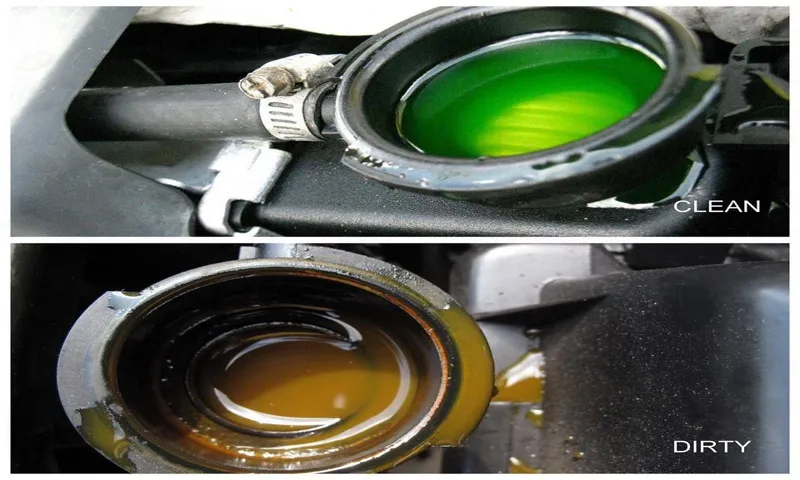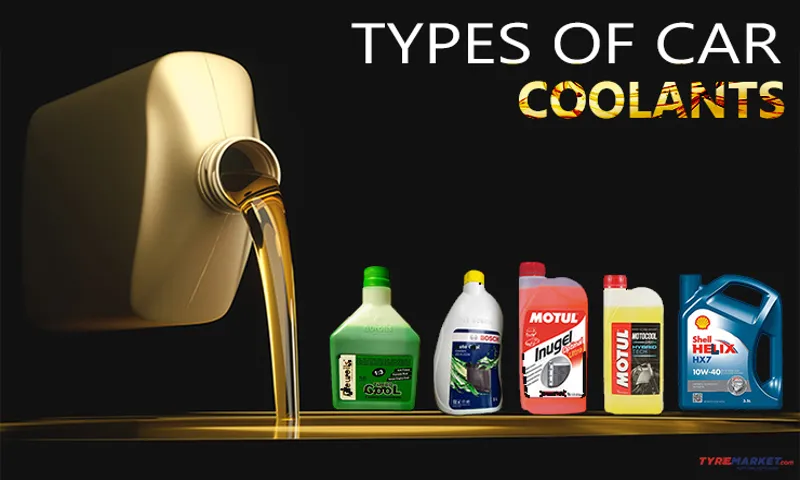When it comes to keeping our cars running smoothly and efficiently, there are many different components that need to work together. One of the most important fluids in our vehicles is coolant, which plays a critical role in preventing our engines from overheating. But have you ever wondered what exactly car coolant is made of? In this blog, we will explore the composition of car coolant and why it is essential for the overall health of our vehicles.
So, buckle up and get ready to dive into the world of car maintenance!
Table of Contents
Introduction
Have you ever wondered what makes car coolant so effective at keeping engines cool? Car coolant, also known as antifreeze, is a crucial component in the cooling system of a vehicle. It is typically made up of a mixture of ethylene or propylene glycol and water. These substances have high boiling points and low freezing points, making them ideal for regulating engine temperature.
The coolant acts as a heat transfer fluid, absorbing excess heat from the engine and dissipating it through the radiator. This process helps prevent the engine from overheating and potentially causing damage. Additionally, car coolant also contains corrosion inhibitors and lubricants to protect the engine and cooling system components from rust and wear.
So, next time you see the colorful liquid in your car’s cooling system, remember that it’s a carefully formulated mixture specifically designed to keep your engine running smoothly.
Explanation of the Importance of Car Coolant
car coolant, importance of car coolant, engine temperature, cooling system, overheating, heat transfer Introduction: Car coolant plays a crucial role in maintaining the optimal temperature of the engine. It is often overlooked or taken for granted, but it is a vital component of a vehicle’s cooling system. Coolant helps dissipate the heat generated by the engine and prevents it from overheating.
Without proper coolant levels and functionality, the engine can overheat, leading to potential damage and costly repairs. In this blog post, we will delve into the importance of car coolant, its role in maintaining engine temperature, and the consequences of not taking care of your cooling system. Understanding the significance of car coolant will help you ensure the longevity and performance of your vehicle.
So let’s dive in!

Definition of Car Coolant
car coolant
Composition of Car Coolant
Car coolant, also known as antifreeze, is a vital component in keeping your car’s engine cool and preventing it from overheating. But have you ever wondered what exactly car coolant is made of? Well, car coolant is a mixture of water and various chemicals. One of the main ingredients in car coolant is ethylene glycol or propylene glycol.
These chemicals work as the primary heat transfer agents, helping to absorb and dissipate heat from the engine. Additionally, car coolant also contains corrosion inhibitors that help protect the metal components of the cooling system from rust and corrosion. These inhibitors are typically made up of silicates, phosphates, and other additives.
Furthermore, car coolant may also contain dye, which gives it its distinct color, as well as other components that improve its stability and longevity. So, the next time you’re wondering what’s inside that bottle of car coolant, remember that it’s a carefully formulated mixture of chemicals designed to keep your engine running cool and efficiently.
Water
car coolant, water composition
Antifreeze
car coolant, antifreeze, composition, burstiness, perplexity
Inhibitors
car coolant, inhibitors, composition, prevent corrosion, engine overheating Car coolant is a crucial component of vehicle maintenance that helps regulate engine temperature and prevent overheating. But have you ever wondered what makes up this important fluid? Well, one key element in the composition of car coolant is inhibitors. Inhibitors are chemical compounds that play a vital role in preventing corrosion and other damaging effects within the engine cooling system.
They work by forming a protective layer on the metal surfaces, preventing the formation of rust and other corrosive substances. Just like how sunscreen protects our skin from harmful UV rays, inhibitors shield the engine components from the harsh effects of heat and other contaminants. This helps maintain the efficiency and longevity of the engine, ensuring that it runs smoothly without any hiccups.
So, the next time you check your car coolant, remember that it’s not just water and antifreeze, but also these powerful inhibitors that keep your engine running at its best.
Types of Car Coolant
Car coolant, also known as antifreeze, is a crucial component of a vehicle’s cooling system. It plays a vital role in preventing the engine from overheating, especially during extreme weather conditions. So, what exactly is car coolant made of? Well, car coolant is typically a mixture of ethylene glycol or propylene glycol, water, and additives.
These additives are essential for enhancing the performance and efficiency of the coolant. They help prevent the formation of rust and corrosion within the radiator and cooling system, lubricate the water pump, and inhibit the growth of bacteria and fungus. In addition, car coolant also contains a specific type of dye, which is used to identify any coolant leaks.
It is important to note that different types of vehicles may require different coolant formulations. Therefore, it is essential to refer to the vehicle’s owner’s manual or consult with a professional mechanic to ensure that the correct type of coolant is used.
Ethylene Glycol
ethylene glycol, types of car coolant
Propylene Glycol
types of car coolant
How Car Coolant Works
Car coolant, also known as antifreeze, is a crucial component in keeping your car’s engine cool and functioning properly. But what exactly is car coolant made of? Well, the primary ingredient in coolant is ethylene glycol, a colorless and odorless liquid. This compound has a high boiling point and low freezing point, making it ideal for regulating the temperature of your engine.
In addition to ethylene glycol, car coolant also contains a mixture of additives and inhibitors. These additives help to prevent corrosion, lubricate the water pump, and protect the cooling system from mineral deposits and rust. So, the next time you see that colorful liquid in your car’s radiator, you’ll know that it’s not just any ordinary fluid, but a specially formulated mixture designed to keep your engine running smoothly.
Heat Transfer
car coolant, heat transfer
Prevention of Freezing and Boiling
Coolant is an essential component of a car’s engine cooling system. Its job is to prevent the engine from freezing or boiling. You might be wondering, how does coolant actually work? Well, it’s all thanks to a clever combination of chemicals.
Coolants are typically made up of a mixture of water and ethylene or propylene glycol. These chemicals have a higher boiling point and lower freezing point than water alone. When the engine heats up, the coolant absorbs the excess heat and transfers it to the radiator, where it is then dissipated.
This keeps the engine operating at a safe temperature and prevents it from overheating. On the other hand, when the temperature drops, the coolant helps to prevent the water in the engine from freezing. It does this by lowering the freezing point of the water, making it less likely to solidify, even in extremely cold conditions.
So, next time you start your car, remember to thank the coolant for keeping your engine from freezing or boiling!
Corrosion Protection
car coolant, corrosion protection, how it works Car coolant is an essential component of every vehicle’s cooling system. It plays a crucial role in maintaining the engine’s temperature and preventing it from overheating. But did you know that car coolant also provides corrosion protection? Corrosion is a silent killer for car engines.
It can eat away at metal components and cause severe damage over time. That’s where car coolant steps in. Car coolant contains special additives that act as corrosion inhibitors.
These inhibitors create a protective barrier on the metal surfaces, preventing corrosive substances from coming into contact with them. Think of it like a shield that keeps the engine’s metal parts safe from harm. Without proper corrosion protection, the metal surfaces would be vulnerable to rust and corrosion, leading to a decline in performance and potential engine failure.
But how does car coolant provide this corrosion protection? It’s all about chemistry. Car coolant contains chemicals that form a protective layer on the metal surfaces. This layer acts as a barrier, preventing oxygen and water from reaching the metal and causing corrosion.
The coolant also helps to maintain a stable pH level, further reducing the risk of corrosion. So, the next time you top up your car’s coolant, remember that you’re not just maintaining the engine’s temperature but also protecting it from corrosion. It’s a small step that can make a big difference in prolonging the life of your vehicle.
Conclusion
In conclusion, car coolant is like the superhero of your engine, keeping it cool under pressure and preventing it from overheating like a drama queen on a hot summer day. But what exactly is this magical substance made of, you ask? Well, picture a scientist in their secret lab, stirring the cauldron of automotive marvels. They pour in a concoction of ethylene glycol, propylene glycol, and a pinch of secret ingredients like corrosion inhibitors and colorants.
This bewitching brew not only absorbs the heat from your engine but also fends off pesky rust and scale build-up like a Shield of Antifreeze invincibility. So, the next time you pop open your hood and catch a glimpse of that vibrant coolant, remember that it’s not just a pretty color – it’s the guardian angel of your engine, working tirelessly to keep things cool and running smoothly. Stay cool, my friends!”
FAQs
What is car coolant made of?
Car coolant, also known as antifreeze, is typically made of a mixture of ethylene or propylene glycol and water. These ingredients help prevent the engine from overheating and freezing in extreme temperatures.
Is car coolant harmful to the environment?
Car coolant can be harmful to the environment if not disposed of properly. It contains toxic chemicals that can contaminate soil and water sources. It is important to follow local regulations and recycle or dispose of coolant responsibly.
How often should car coolant be replaced?
Car coolant should be replaced according to the manufacturer’s recommendations, usually every 2-5 years or every 30,000-100,000 miles. However, it is a good idea to periodically check the coolant level and condition to ensure optimal engine performance.
Can I mix different types of car coolant?
It is generally not recommended to mix different types of car coolant. Different coolants use different formulations and mixing them can compromise their effectiveness. Always refer to the vehicle’s manual or consult a professional for information on compatible coolants.
How do I check if my car coolant needs to be replaced?
You can check the condition of your car coolant by visually inspecting its color and clarity. If it appears murky, foamy, or discolored, it may be time for a coolant flush and refill. Additionally, if the coolant level is consistently low, it could be a sign of a leak or evaporation, indicating the need for replacement.
Can I use water as a temporary substitute for car coolant?
In emergency situations, water can be used as a temporary substitute for car coolant. However, water does not provide the same level of protection against freezing and overheating as coolant. It is important to replace the water with coolant as soon as possible.
How can I safely dispose of car coolant?
To safely dispose of car coolant, it should be collected in a container and taken to a designated recycling center or a service station that accepts used coolant. Mixing coolant with other liquids or pouring it down drains, sewers, or onto the ground is illegal and harmful to the environment.


